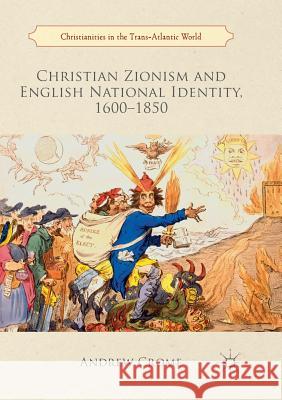Christian Zionism and English National Identity, 1600-1850 » książka
topmenu
Christian Zionism and English National Identity, 1600-1850
ISBN-13: 9783030083953 / Angielski / Miękka / 2019 / 305 str.
Kategorie BISAC:
Wydawca:
Palgrave MacMillan
Seria wydawnicza:
Język:
Angielski
ISBN-13:
9783030083953
Rok wydania:
2019
Wydanie:
Softcover Repri
Numer serii:
000811385
Ilość stron:
305
Waga:
0.37 kg
Wymiary:
21.01 x 14.81 x 1.68
Oprawa:
Miękka
Wolumenów:
01
Dodatkowe informacje:
Wydanie ilustrowane











